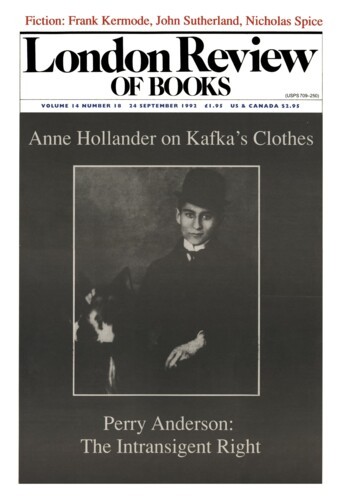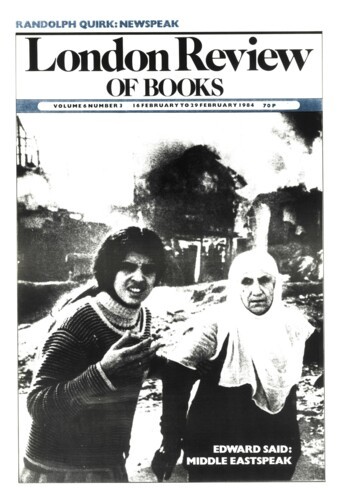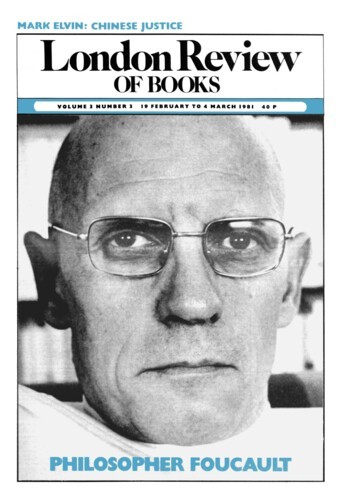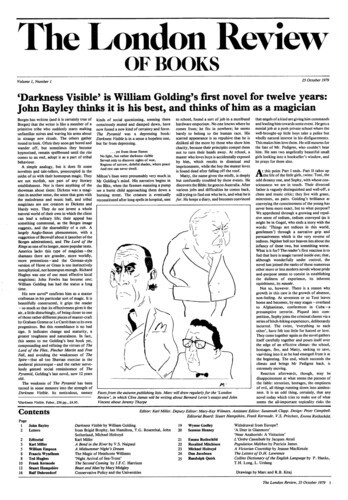Incriminating English
Randolph Quirk, 24 September 1992
Among various worries I have about the degree subject English, the most serious is the decline (to near vanishing point in many universities) of historical language study. One accepts, of course, that there is an awful lot else to claim the attention of teachers and taught; that the literature of the past two hundred years alone is more than enough challenge for the three short years of undergraduate life. One accepts, too, that things were not helped by a tradition in teaching the history of the language that was more than a little offputting, even for those who would spurn any passing passions for ‘relevance’. Preoccupation with Germanic comparative philology some times failed even to get the starred forms of proto-English across the North Sea before the course ended. Even the faster and less doggedly traditional teachers were liable to get bogged down in the phonology of Middle English dialects and the mysteries of ‘ash one’ and ‘ash two’.





